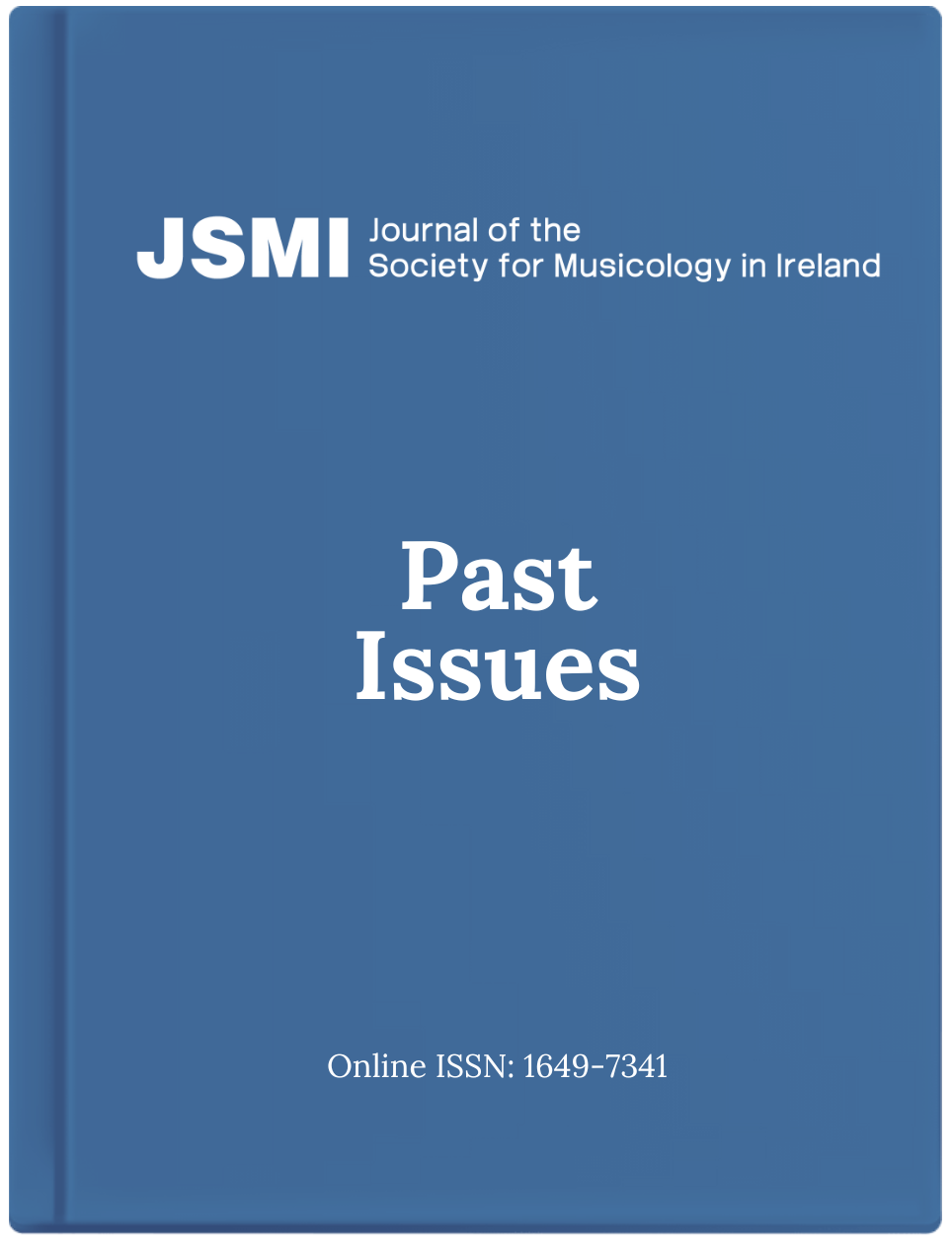Constitution
The Editorial Board of the Journal of the Society for Musicology in Ireland
The Editorial Board was established by the Council of SMI first to create, and then to manage and develop, the journal. The nature of JSMI and how the journal operates has been consolidated during the first years of its existence. The present document formalizes specific points about the Editorial Board.
1. The function and powers of the Editorial Board
(i) The Editorial Board is alone responsible for making all editorial and management decisions about the journal, and conducts all such business confidentially.
(ii) The Editorial Board reports, when required, to the Council of SMI and must, in general terms, operate with the confidence of the Council. Even so, all decisions taken by the Board are taken independently of the Council and without recourse to the Council.
2. The size and complexion of the Editorial Board
(i) The size of the Editorial Board is determined by the journal’s current level of business and need for specialists in particular areas. It should not fall below a total of five members.
(ii) The Board must always strive to achieve gender balance.
(iii) Together the members of the Board represent diverse areas of musical scholarship, but it is not essential for them to embrace every area or discipline. Specialist expertise is naturally found through the peer-review process and other specialists may be consulted on an ad hoc basis.
(iv) The Board may recruit assistants to the editorial team as required (e.g. persons to help with the technicalities of the journal’s online operation). Such assistants are not members of the Board.
3. Who chooses and appoints new members of the Editorial Board?
(i) New members of the Editorial Board are chosen and invited by the existing members of the Editorial Board, on the principle that this must be a close-knit team who must have confidence in each other and be able easily to work together. Suggestions made by individual members of the Board must have the support of the majority of the Editorial Board.
(ii) In the event that the membership of the Editorial Board falls, though resignation, to less than three persons, the Council of SMI may itself nominate and appoint new members. Otherwise all appointments are solely within the remit of the Editorial Board.
4. The term of office for membership of the Editorial Board
(i) Members serve for a three-year term with the option of extending this by a further two years, subject to the approval of the Board. The Executive Editor, Reviews Editor and Copy Editor have a three-year term with the option of extension by a further year, subject to the approval of the Board.
(ii) A member of the Board may step down before their three year term has elapsed.
(iii) It is advantageous (for the sake of the continuity of the journal’s business) for the membership of the Board to change gradually rather than en bloc.
5. The role of Executive Editor
(i) One of the members of the Editorial Board serves as Executive Editor. The Executive Editor chairs all meetings of the board. The Executive Editor has a casting vote on all the decisions of the board. The Executive Editor is the first contact point with all authors who submit articles and informs them of the board’s decision regarding publication or rejection of the article.
(ii) The Executive Editor assigns accepted articles to members of the board for editing.
(iii) Potential candidates for the role of Executive Editor are proposed by a member of the board and elected by a majority of the Board. Members of the Board can stand for the position of Executive Editor. Alternately an outside candidate can be chosen by the Board.
6. The role of other Board Members
(i) All members of the Editorial Board are by definition editors. Thus all have equal status as editors; all take turns at being the primary editor of articles that are allocated to them.
(ii) All members have responsibility for policy-making by the Board and have a vote in all decisions regarding the running of the journal.
(iii) All members take part in final proofing of each article and review.
7. The role of Reviews Editor
(i) One member of the Editorial Board is selected (by the Board itself) to serve as Reviews Editor, with special responsibility for commissioning and editing reviews.
(ii) The Reviews Editor has the final say regarding content of all reviews.
(iii) The Reviews Editor is responsible for developing the Reviews section of the journal.
8. Copy Editor
(i) The Copy Editor is responsible for producing print-ready copy of the accepted articles after another member of the board has completed the main content edit. They are not required to undertake a first edit on any article.
(ii) The Copy Editor maintains and updates the journal style sheet as necessary.
9. JSMI Site Manager
(i) The JSMI Site Manager maintains the JSMI website, uploads the articles, assigns DOI numbers and ensures that all matters related to IT and data protection are kept up to date.
10. How the business of the Editorial Board is conducted
(i) The board should meet regularly, the frequency of meetings being dictated by the level of business.
11. Advisory Board
(i) The Advisory Board will comprise of international scholars from a wide range of disciplines within music-related studies.
(ii) The President of the SMI has a position on the Advisory Board for the duration of their tenure as President.
(iii) The Editorial Board may from time to time consult with the Advisory Board on matters relating to the Journal.
Updated November 2019



